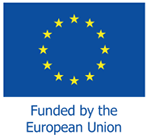The ‘Alliance’ is a new element of the MADE programme which is intended to promote cooperation and joint commitments by the project and participating private sector companies. These address: heightened human rights due diligence; communication and transparency; industry-level and bipartite cooperation and collective action including on issues such as wages and take-home pay, grievance handling, freedom of association and environmental performance.
'Alliance' members commit to...
1. Heightened Human Rights Due Diligence
-
Is the company committed to basing their approach to sourcing from Myanmar on the UN Guiding Principles on Business and Human Rights, including Principles 19 and 21, as well as international labour conventions and other internationally recognised human rights principles? Are they delivering on this commitment?
-
Has the company committed to undertaking ongoing heightened due diligence of their supply chains in Myanmar? What evidence is there that they have done so?
2. Communication
-
Is the company communicating information about its sourcing from Myanmar, including a summary of their human rights due diligence and the salient human rights risks they have identified, and how they are mitigating these?
-
Is the company responding to requests for information from well-established third parties such as the Business and Human Rights Resource Centre (BHRRC) on reports of grievances linked to their suppliers and how they have addressed these?
3. Transparency: Supplier data
-
Is the company sending their current Myanmar factory suppliers to the Secretariat at least every six months? Are they additionally publishing their supplier data (both Myanmar, and global) on their own company website, and taking ownership of their entries on the Open Supply Hub?
-
Does the company keep the MADE Secretariat informed about significant changes to suppliers, and audit or other findings?
-
Does the company respond promptly to surveys and requests for information conducted by or on behalf of the MADE Secretariat?
4. Industry-level and Bipartite Cooperation and Collective Action
5. Wages and take home pay
-
Is the company showing commitment to exploring all options for achieving higher wages for workers in the Myanmar apparel industry? Has it undertaken and shared a self-assessment of the actions they are taking towards wage improvements, including wage surveys of their suppliers.
-
Is the company engaging constructively with trade unions and labour organisations on their suggestions, and piloting practical steps to increase wages and take home pay?
6. Complaints and Grievance Handling
-
Has the company nominated a lead contact for complaints/grievance handling and do they acknowledge any approach from MADE within 48 hours?
-
Does the company engage constructively with all legitimate approaches from rights holders, and prioritise the safety of complainants? How rapidly do they respond?
-
Can the company demonstrate that they require business partners to have effective grievance processes in place at factory level. Do they promote and monitor their effective functioning?
-
Does the company share its own practices for grievance handling and worker engagement? Do they act on viable suggestions to prevent and remediate complaints?
7. Freedom of Association
-
Does the company demonstrate its support for freedom of association, consistent with international labour conventions and the Guideline on Freedom of Association in Myanmar? Does it communicate to suppliers and other business partners that they expect compliance with the FoA Guideline?
8. Environmental Performance
-
Has the company committed to working towards a complete phase out of coal boiler fuel in Myanmar by 31 December 2025, including in their suppliers? Are they delivering on this commitment?
-
Has the company committed to achieve full compliance among suppliers with the globally harmonized system (GHS) for chemical inventory management and labelling by 31 December 2023? Are they delivering on this commitment?
While full achievement of all the criteria is not essential for continued membership of the Alliance, companies will be expected to be actively delivering on a significant number of the commitments, and to have a plan to achieve those which are outstanding.
As of July 24th, 2023, member brands participating in the Multi-stakeholder Alliance for Decent Employment in the Myanmar apparel industry include:
-
H&M
-
Bestseller
-
Adidas
-
Deuter
-
Hunkemöller
-
Vaude
-
Schöffel
-
Bergans
-
Barbour
-
Regatta
-
Takko
-
Amer Sports
-
Tendam
-
MS Mode
-
Oberalp/Salewa
-
We Fashion
-
O'Neill
The Myanmar supplier base of the above listed Alliance members is estimated to account for roughly 50% of all apparel product exports to the EU market, mostly garments, footwear and handbags, but also some backpacks, luggage and sporting equipment. The Myanmar suppliers of the above mentioned brands/retailers employ approximately 180,000 individuals, of which 88% are women workers.

